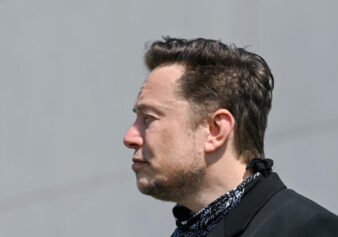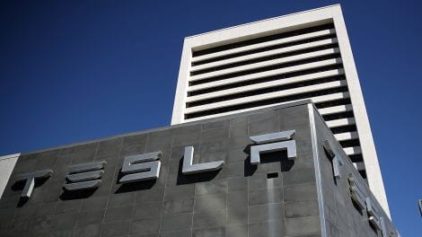A battery-electric car that accelerates quicker, drives farther and charges faster than any other on the market, the 2012 Tesla Model S is a work in progress whose capacity to evolve is more revolutionary than the fact that it is an electric car.
Our experience with the gorgeous Tesla Model S got off to a rocky start. After a couple of hours, our first loaner shut down — not because of a dead battery, but a dead key fob. Unlike other keyless-access systems, which hide a physical key in the remote and a keyhole on the car, the Model S has none. Tesla technicians had already spent a couple hours on the car at our office when I aborted altogether and took the train home.
Our second loan, a different Model S, drove well but would not recharge because of a supplied charging cord that Tesla later determined was defective and replaced, mid-loan.
Tesla says production models allow a remote with a dead battery to unlock and start the car. We’re left to take Tesla’s word for it that these test cars had already been through an abusive car-reviewer mill and that typical products will perform without incident.
There was something apart from the failures we had to get beyond before we could properly evaluate the Model S: its staggeringly quick acceleration. As the most capable, feature-packed version of the Model S, the Signature Performance version we tested accelerates from zero to 60 mph in about 4.4 seconds.
It goes beyond the impressive spec: It’s the immediate rush of off-the-line acceleration that buries you in the backrest in ways gas-powered cars don’t — even if their zero-to-60 mph times match. This isn’t new to us, having experienced it in cars as modest as the Nissan Leaf; the thrill is simply doubled here.
We needed to overcome this speed-induced intoxication for two reasons: First, power distracts from a car’s other characteristics, which is why automakers have been known to pack horses under hoods rather than address other failings. Second, not all versions of the Model S will be this quick. The first 1,000 Model S cars sold were Signature versions — now long sold out — and they were loaded with features and built only with the largest of three available batteries, rated 85 kilowatt-hours. The Signature’s starting price for the 2012 model was $96,570, including a $1,170 destination charge but excluding a federal tax credit of up to $7,500, for which most plug-in cars are eligible.
At that price, the zero-to-60 time is plenty quick at 5.6 seconds. There’s an optional higher-capacity inverter (the device that converts the battery’s direct current to alternating current for the drive motor) that knocks the sprint down to 4.4 seconds. The inverter upgrade comes with some other features in the Signature Performance, which cost $106,570 (all prices include destination charges) as a 2012 model. With a few more options, our Signature Performance test car hit $108,070.
Read more: Joe Wiesenfelder, Cars


